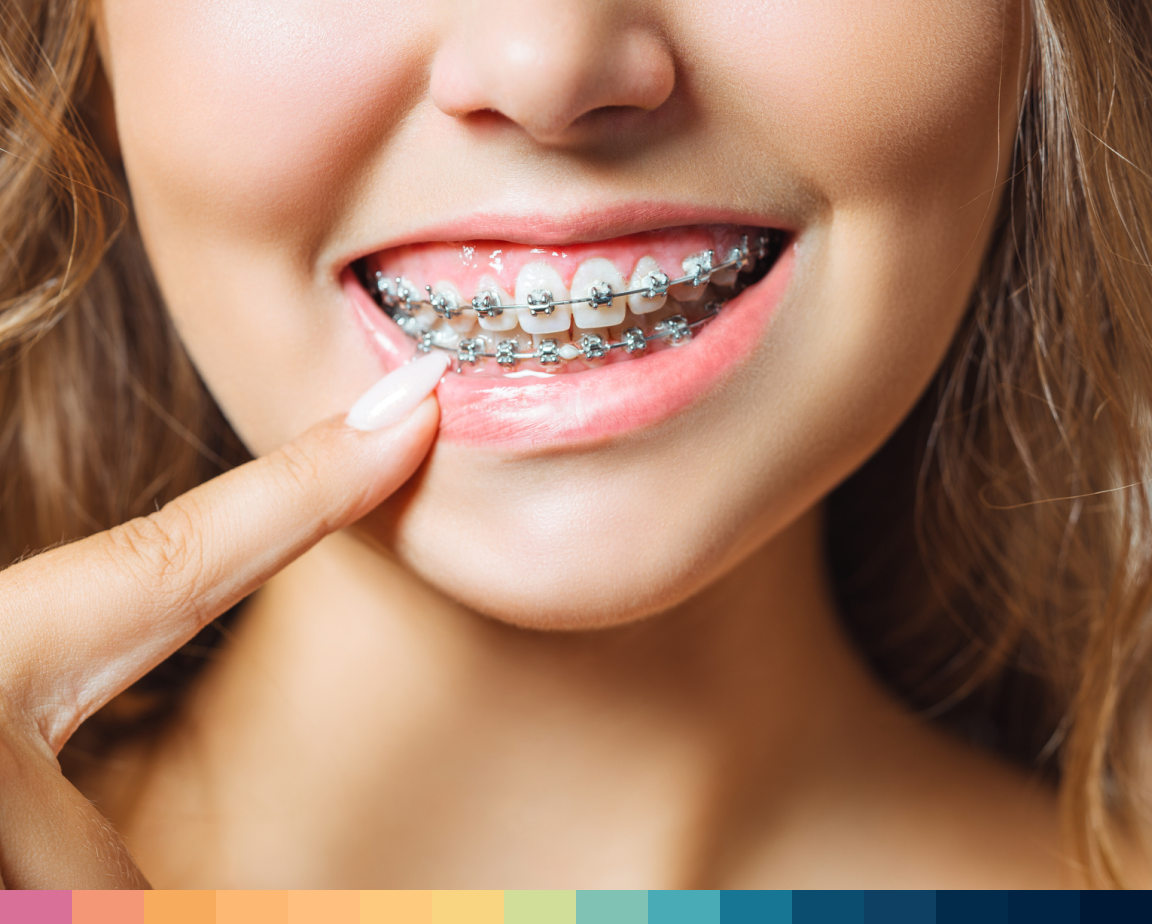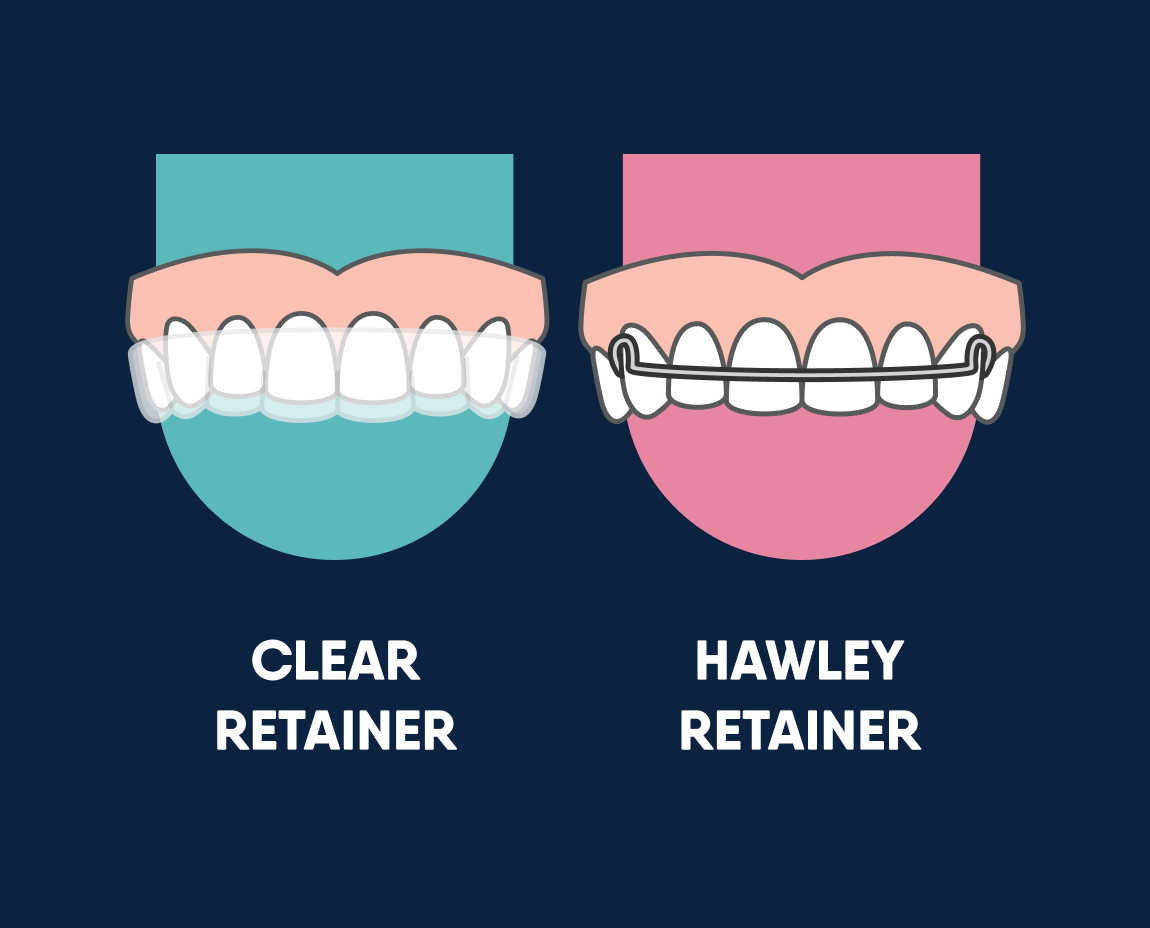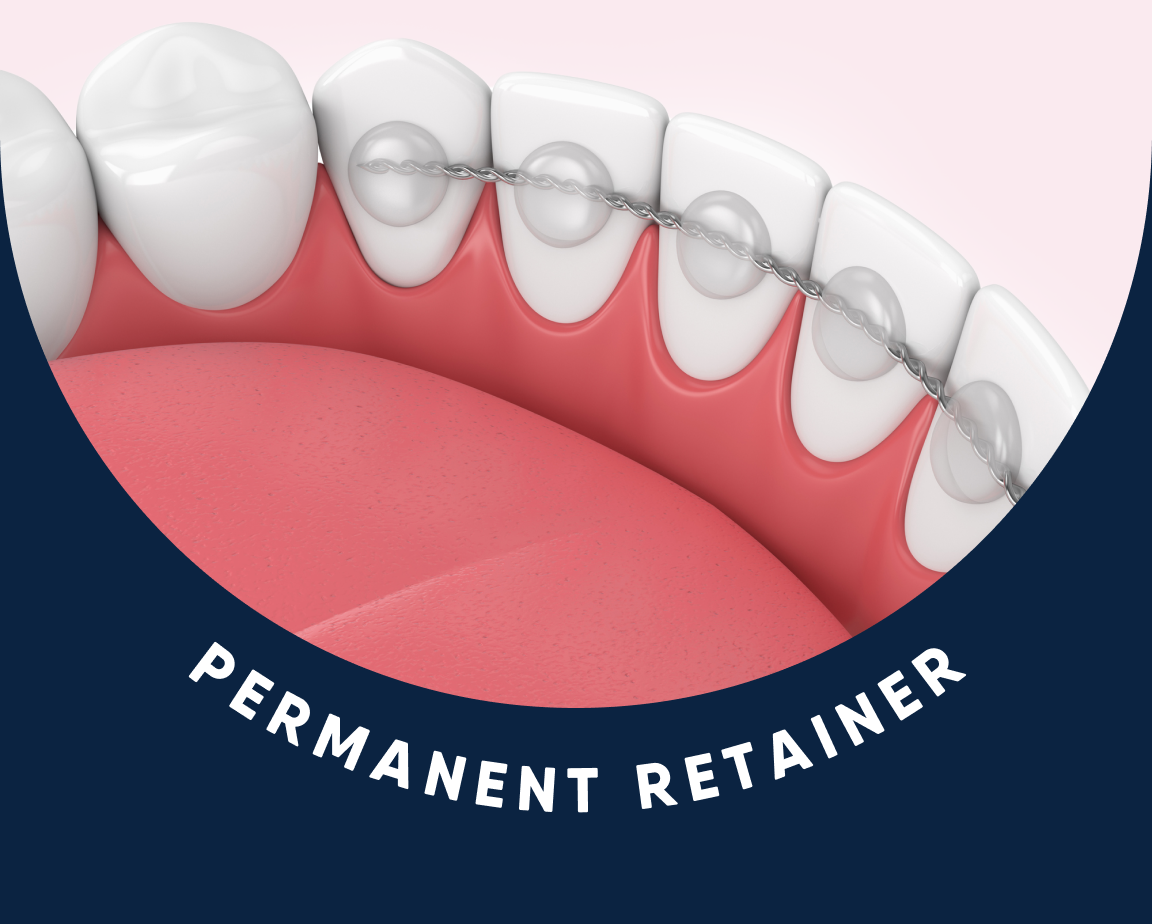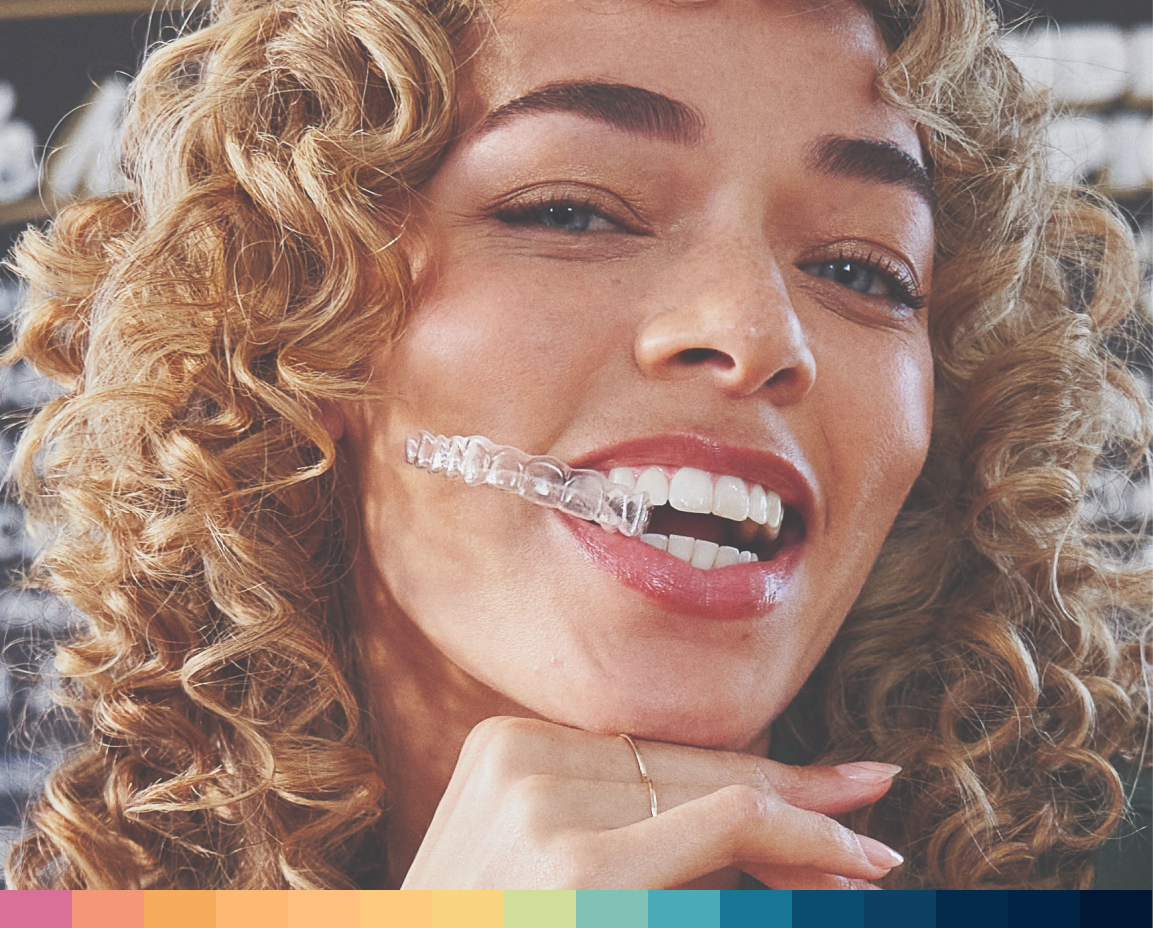Why Do You Need a Retainer After Braces?
Discover why retainers are crucial after braces. Learn how retainers maintain your smile alignment for lasting results.
So, you've finished your treatment with traditional braces or clear aligners, and your smile looks great. Your teeth alignment journey has been no small feat. It’s the result of diligent care—cleaning, maintenance, adjustments, and relentless flossing, not to mention the significant investment of time and money. The journey to those perfectly aligned pearly whites involved a considerable amount of effort. Go you!
You might think you're all done, but there's one more important step: wearing a retainer. Why? Because without it, your teeth can start to shift back to where they were before. This article explains the importance of retainers after braces or invisible aligners and helps to guide you in selecting the right one to keep your smile looking good.

How do retainers after braces work?
Once your braces are off or you're done with your Motto® clear aligners treatment, your teeth aren't firmly set in place yet. They can move and shift because the bone and tissues around them are still getting used to the new position. That's where retainers come in and will be your saving grace in keeping your teeth straight and aligned for years to come.
Here’s what you can expect for the next chapter in your teeth alignment story:
Getting fitted: Right after your braces or aligners are removed, your orthodontist makes a mold of your teeth. This mold is used to make a retainer that fits your teeth perfectly.
Keeping your teeth in line: Your retainer puts a gentle pressure on your teeth to keep them in their new, straight position. Wearing your retainer as your orthodontist tells you is key to making sure your teeth don't move back.
Gradually wearing it less: At first, you'll wear your retainer all the time. But as your teeth settle, you'll need to wear it less. Your orthodontist will tell you how often to wear it to make sure your smile stays perfect.
Even after your braces or aligners are done, retainers are super important to keep your teeth straight. Think of them as the heroes keeping your smile safe.

Types of retainers to wear after braces
There are three primary types of retainers: a clear removable retainer, a Hawley retainer, and a permanent, fixed retainer. Each comes with its advantages and disadvantages. Let’s explore what these are:
Clear removable retainer
Motto® gives you clear retainers that are pretty much invisible. People love them because:
They're hard to see: You can wear them without anyone noticing. You can smile big and confidently for those selfies!
You can take them out: They're easy to remove when you eat or brush your teeth, or for special occasions. Just remember to put them back on as soon as you can.
They work great: They keep your teeth straight and look good doing it. Killing two birds with one stone. Who doesn’t love that?
They're affordable: Clear retainers can cost less than other types, making them one of the more cost-effective options for retainers. And Motto also offers package add-ons, like MottoRetain™, which gives you a package of 4 retainer sets. You can’t put a price tag on peace of mind.
Hawley retainer
Hawley retainers are the old-school type with metal wires which is what most people think of when they hear the word “retainer”. They're not as popular because:
You can see them: They're more noticeable than clear retainers, making them non-discreet and visible when you smile.
They might not work for everyone: Hawley retainers need constant monitoring and adjustments, which may not be for everyone. The dental industry is growing and moving forward with more modern and effective technological advances for orthodontics these days. This has opened the doors to better, more effective, and affordable options over traditional ones.
Permanent retainer
Permanent retainers use a single wire that is bonded to the back of your teeth. They're in it for the long haul but have a few downsides as well as some positive traits:
Somewhat visible: They're less noticeable than Hawley retainers but can still be seen up close.
They’re harder to clean: You must work more to keep them clean, which can lead to plaque buildup. Since they are bonded to your teeth permanently, there is no way of removing them for those special occasions or for oral hygiene routines. They will require special flossing to get in between the wire and the teeth.
Usually long-lasting: They're good at keeping your teeth in place for a long time with consistent protection since they are permanently placed on your teeth. If you wear them for more than 24 months, you will eventually need a replacement.
Cost-effective over time: Because they’re designed with longevity in mind, they may be a good deal over the long run, but there is often an upfront cost that may cost more than other options.

What happens if you don't wear a retainer after braces?
You’ll be back in braces or aligners in no time. Hello deja vu. Failing to wear a retainer as recommended by your orthodontist can make your teeth shift back into misalignment, undoing your dutiful results achieved by invisible aligners or braces. Going through orthodontic treatment again can be costly, time-consuming, and frankly, annoying. This is why retainer maintenance is just as important as your treatment for aligning your beautiful teeth.
Here’s a closer and more detailed look at what could happen if you forget or neglect to wear your retainer as advised by your orthodontist (as if we haven’t got you shakin’ in your boots already):
Reverting to original position: The most noticeable effect of not wearing a retainer is the gradual shift of your teeth back to their original, pre-treatment positions. This is due to the memory of the periodontal ligaments and the natural tendency of these ligaments to pull the teeth back to their initial placement.
Bite misalignment: As teeth move out of alignment, it can lead to an improper bite, known as malocclusion. This can cause a range of complications, from difficulty in chewing and speaking to more severe jaw pain and temporomandibular joint disorders (TMJ). Such conditions not only affect oral health but can also lead to headaches and neck pain impacting your overall quality of life. Ouch!
Aesthetic changes: The visual impact of teeth reverting to their misaligned state can significantly affect your confidence and self-esteem. After investing time and resources into achieving your ideal smile, seeing it diminish can be disheartening.
Increased dental health issues: Misaligned teeth are harder to clean, making them more susceptible to plaque buildup, tooth decay, and gum disease. The nooks and crannies created by improperly aligned teeth can become breeding grounds for bacteria, leading to long-term health issues that could have been easily avoided with retainer use.
Additional orthodontic treatment: If teeth shift significantly, the need for re-treatment with braces or aligners may become necessary. This not only means additional financial investment but also going through the inconvenience and discomfort of orthodontic treatment all over again. Not fun.
Financial impact: Beyond the physical consequences, the financial toll of needing orthodontic treatment again is taxing. It's not just about the discomfort, health issues, or the time invested; it's about the frustration of seeing your progress reversed due to a preventable issue and having to pay doubly for your hard work.

MottoAssured: your smile's safety net
In our commitment to ensuring your smile remains perfectly aligned long after your orthodontic treatment concludes, Motto® offers an exclusive program known as MottoAssured™. This is included in all Motto® packages. We make sure you're not just investing in a set of aligners; you're investing in peace of mind for your smile's future. This program serves as a safety net, ensuring that if your teeth ever shift after your treatment has concluded, you'll have access to corrective aligners at no additional cost. It's our way of guaranteeing that the beautiful smile you achieve with us stays that way. MottoAssured™ is our Smile Satisfaction Promise.¹

Talk to Motto® today
Remember, maintaining that ideal smile requires continuous care. Don't let your investment in a beautiful smile go to waste. So, take the next step in safeguarding your smile's future by getting in touch with us at Aspen Dental. Explore the variety of retainer options we offer and find the one that best fits your post-orthodontic life. We’ll help you get custom-fitted with a retainer, so your smile stays as straight as the day your aligners came off.
Your commitment to your smile's maintenance is a testament to your dedication to not just your appearance, but your overall well-being. A beautiful smile is a journey, not a destination. Let Motto® at Aspen Dental be your partner in preserving the smile you've worked so hard for.
¹Must be in compliance with your doctor-directed treatment plan. Refinements must be requested within 30 days of completing your last aligner step and prior to receiving your retainer.

